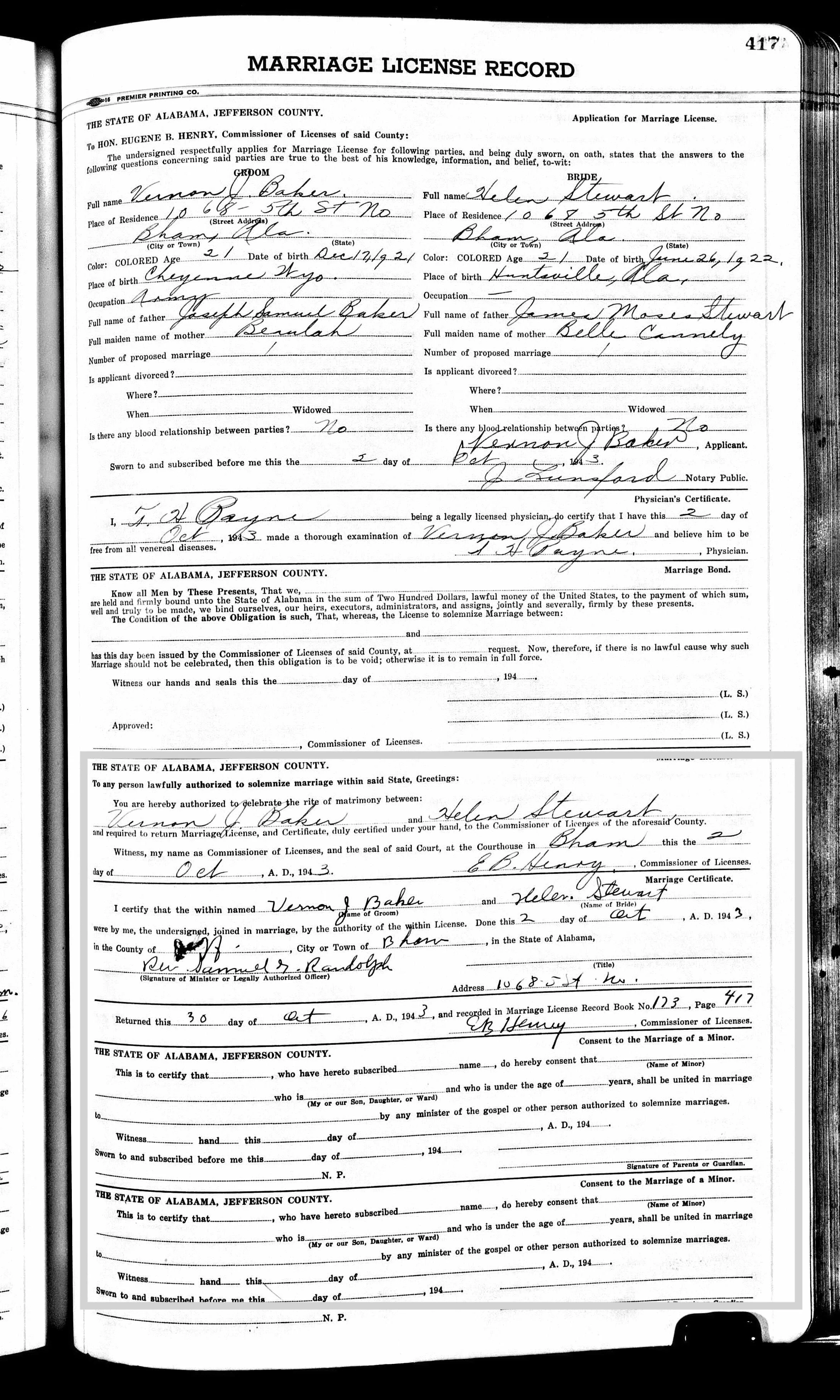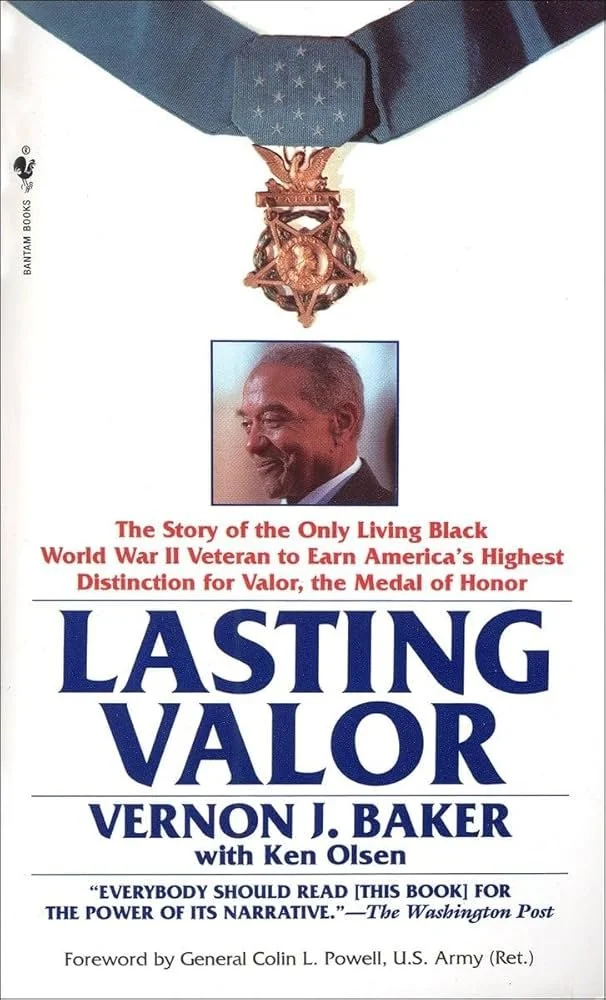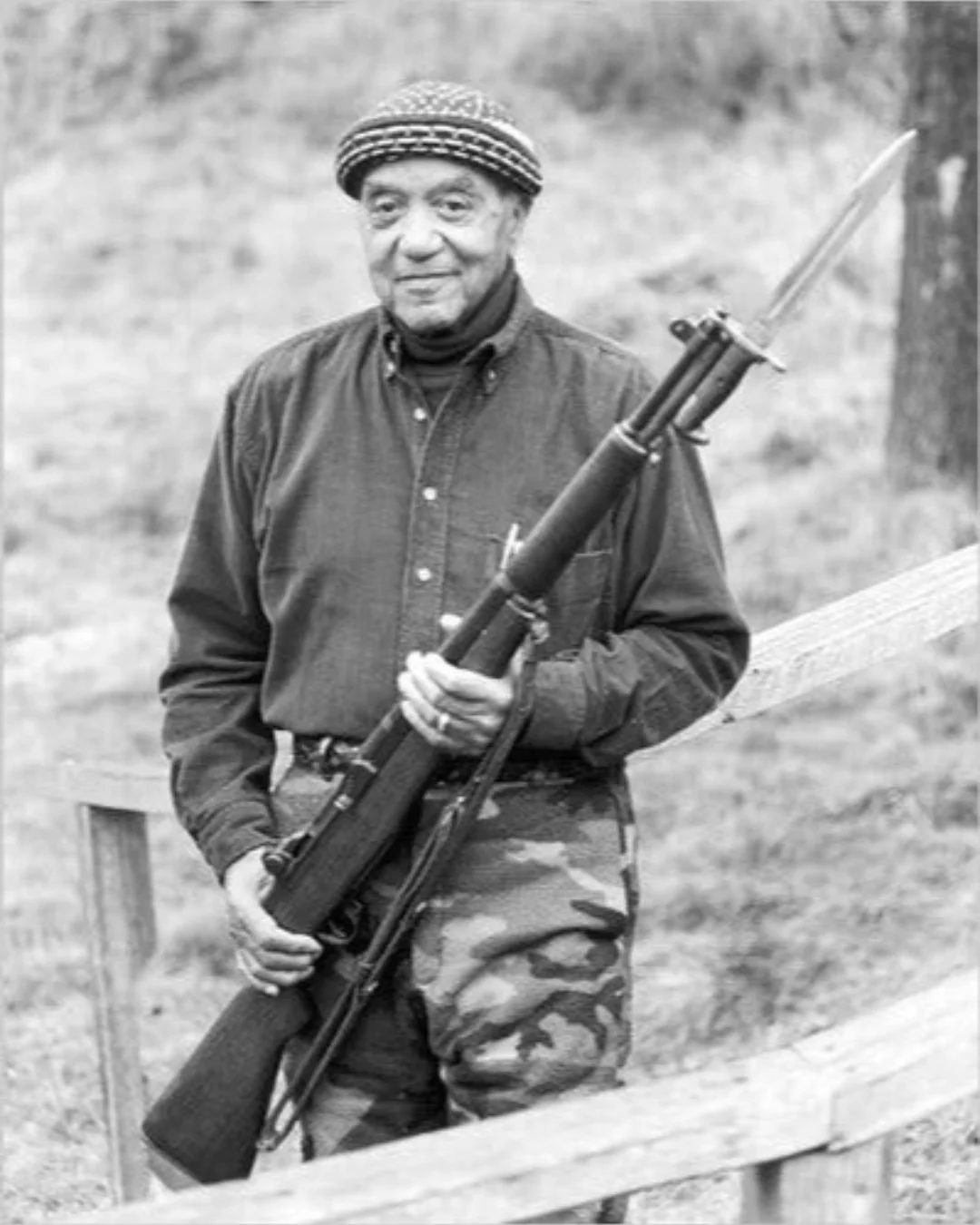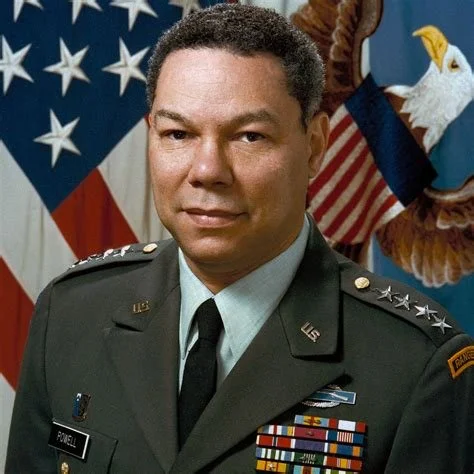SECOND LIEUTENANT
VERNON J. BAKER
Vernon J. Baker is a recipient of the Congressional Medal of Honor, and thus is the most decorated Conley family member in the 160-year military legacy.
Service History
World War, 1939-1945
Branch of Service: Army
Service Unit: Company D, 370th Infantry Regiment, 92nd Infantry Division
Highest Rank: First Lieutenant
Dates of Service: 1941-1947
Service History Note: The veteran earned the Medal of Honor for his extraordinary heroism in action on 04/05/1945 and 04/06/1945, near Viareggio, Italy. The veteran became the first African-American World War II Medal of Honor recipient on 01/13/1997, with 6 others, who were awarded the Medal of Honor posthumously; the Medal of Honor was upgraded from the Distinguished Service Cross, which he had already earned.
Korean War, 1950-1953
Branch of Service: Army
Service Unit: 82nd Airborne Division; 8th Air Infantry Brigade, 11th Airborne Division
Highest Rank: First Lieutenant
Vietnam War, 1955-1975
Branch of Service: Army
Dates of Service: 1968
EARLY LIFE & CHILDHOOD
Baker was orphaned at only four (4) years by his parents’ untimely death in a car accident, he was raised by his grandparents in Cheyenne, Wyoming.
A pugnacious youth, he was raised primarily by his grandfather, Joseph Baker in Wyoming, a rugged outdoorsman who was an avid hunter. Joseph taught young Vernon how to shoot a rifle and other firearms, as well as how to handle hunting knives. Young Vernon hunted Elk, Antelope, with rabbit and other wild game. Baker graduated in 1939 from Clarinda High School in his grandfather's hometown of Clarinda, Iowa. “He worked as a railroad porter, a job he despised, until his grandfather's death from cancer on Christmas in 1939” according to his obituary in the Spokesman Review, the Spokane, Washington newspaper.
Enlistment photo.
WW2 COMBAT IN ITALY
On July 15, 1944, Lieutenant Baker and 7,000 other men boarded the SS Mariposa at Newport News, Virginia. During the two-week voyage to Italy, Baker and his platoon grew close. They arrived in Naples, Italy, on July 28, 1944.
In the pre-dawn hours of April 5, 1945, Baker and the rest of Company C, First Battalion, 370th Infantry led an attack on Castle Aghinolfi, where the Germans had an artillery position and stronghold. Baker led his troops through enemy mine fields and heavy fire to secure an occupied mountain objective. Of the 25 men in his platoon in Italy, 19 were killed, as Baker personally eliminated an observation post, which included three (3) enemy machine gun nests under heavy assault.
“Lieutenant Baker’s fighting spirit and daring leadership were an inspiration to his men and exemplify the highest traditions of the military service.” - Congressional Medal of Honor Society
KOREAN WAR
1950-1953
Baker continued his service in the U.S. Army, becoming a paratrooper in the 11th Airborne Division and serving in the Korean War.
Click here, to learn more about the valor of Vernon Baker. The only living Black veteran to be given the Medal of Honor. All others had passed away by the time this historical wrong was corrected.
Vernon Baker receiving the Congressional Medial of Honor for valor demonstrated in Italy during WWII.
BEGINNINGS IN MILITARY
He enlisted 1941, as World War II unfolded. He was assigned to the Quartermaster Corps of the 25th Infantry at Geiger Field in Spokane, Washington. He hungered for combat experience.
“Baker was sent to Camp Wolters, Texas, for basic training. Afterward, he was stationed with the Twenty-fifth Infantry, one of the historic Buffalo Soldier regiments, at Fort Huachuca, Arizona. While at Fort Huachuca, he quickly rose to the rank of staff sergeant. Because of his work ethic and abilities, he was nominated to attend officer candidate school in October 1942 at Fort Benning, Georgia.” -National Park Service website
Baker completed the 13-week officer-training course and was commissioned a second lieutenant on January 11, 1943. He was briefly assigned to Camp Rucker, Alabama, before being transferred back to Fort Huachuca, where he was a weapons platoon leader in the all-Black 370th Infantry Regiment in the 92nd Infantry Division.
Baker received his commission as a 2nd Lieutenant on January 11, 1943. While stationed in Alabama, in October later that year, Baker married Helen Conley Stewart, who was granddaughter of Paschal ‘Pony’ Conley, and great-granddaughter of William 'Bill’ Conley, and the niece of Congressman Bennett Stewart. Vernon and Helen had two children: Vernon and Michael.
In 1944, he landed at Naples, Italy, and quickly rose to command of Weapons Platoon, C Company, 1st Battalion, 370th Infantry. His marriage to Helen Conley Baker deteriorated.
VALOR DENIED
Although Baker was wounded in the arm, he did not notice his injury until he returned to camp. He spent the next two months recuperating from his wounds at a military hospital in Pisa, Italy.
His Captain recommended Baker for the Distinguished Service Cross, which he received on July 4, 1945, in a ceremony in Viareggio, Italy. He was denied Honors due to the ethnic bias common in that era.
Baker survived the war and remained in Italy on occupation duty until February 1947.
Vernon Baker (middle) with his Cousin Booker Conley (right side) at 370th Regimental HQ, Chiavari, Italy.
He was invited to return to Italy in April 1997 by the Italian government on the 52nd anniversary of the battle for Castle Aghinolfi. In village after village, people turned out to honor Baker and celebrate the black soldiers who freed them from the brutal Nazi occupation.
Baker was also reunited with Emelio Bertilini, a teenage partisan who had been wounded while on a mission with Baker in early 1945. The two men embraced in the town square in Monticello. “This is my man,” a joyful Baker said.
PBS Special on Vernon Baker. A portrait of valor.
LATER YEARS
He retired from the military in 1968 after 27 years of service.
The Wyoming native spent his post-military years in service to his community in Wyoming. He became a local hero, working for the Red Cross for 20 years counseling military families. Among the places this work took him was Vietnam, counseling others during the height of that country's long war.
In 1986, he retired from the Red Cross and moved to rural Idaho. He passed away in 2010 at the age of 90 and was buried with full military honors at Arlington National Cemetery.
Denied the chance to become a Quartermaster like Conleys before him, Baker was thrust into the front of battle in World War 2.
COMMENTS
Colin Powell hailed the quiet, graceful infantryman for clearing the way for him to rise to the top of the American military. “I stood on the shoulders of men like Vernon Baker,” says Powell, a retired four-star general and former chairman of the Joint Chiefs of Staff who joined the Army in 1958.
President Clinton commented, “They were denied the nation’s highest honor, but their deeds could not be denied,” Clinton said during the White House ceremony. The president made a point of quoting Baker’s personal creed, which kept the Wyoming native going during World War II and through his distinguished military career. “Give respect before you expect it. Treat people the way you want to be treated. Remember the mission. Set the example. Keep going. Those are words for all of us,” Clinton added.














